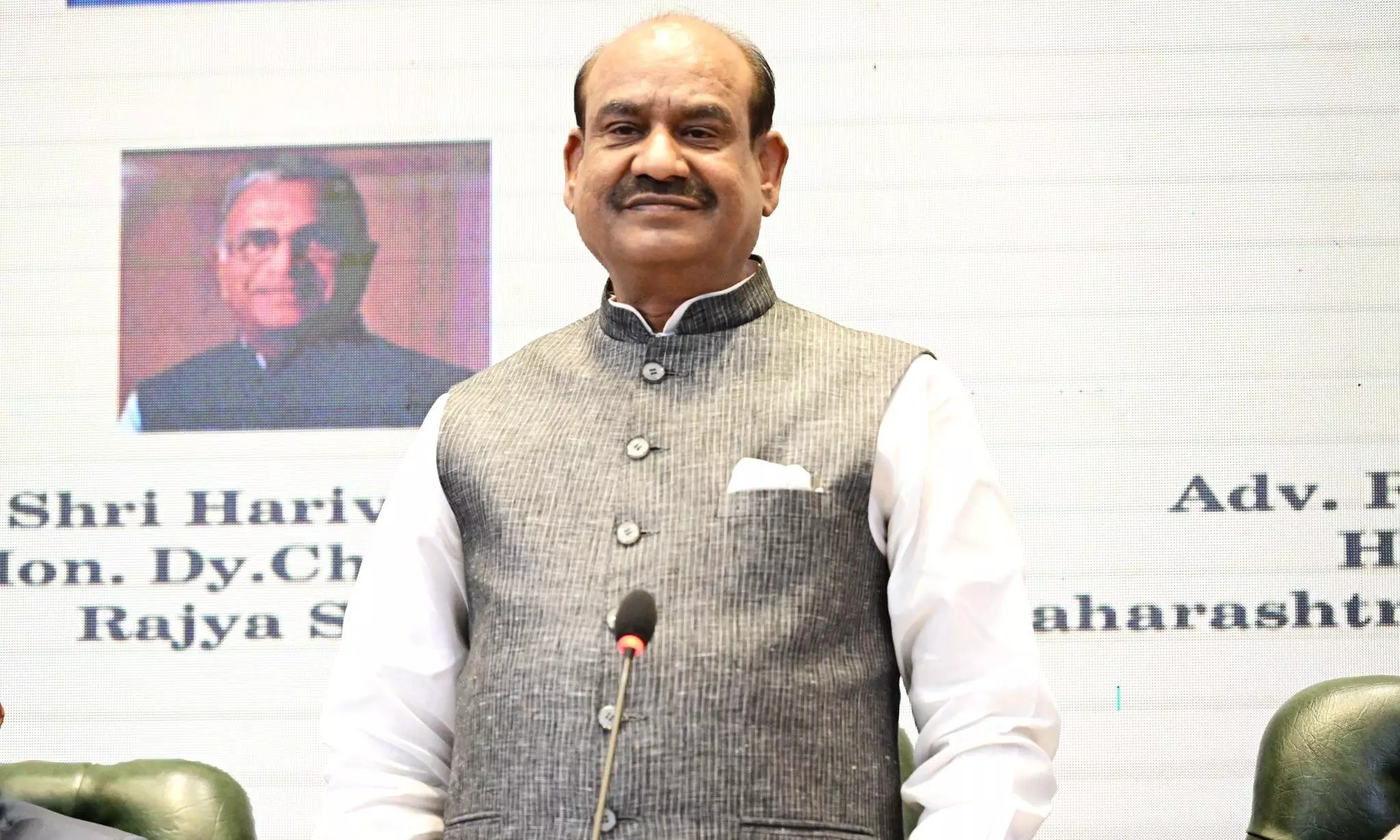Committee Headed by Maharashtra Speaker to Review Anti-defection Law

Om Birla also pointed out that in the past, a committee headed by C.P. Joshi, Speaker of Rajasthan Legislative Assembly, was formed for the review of the 10th Schedule and the Joshi committee had given some suggestions. (File Image: Twitter)
Mumbai: Lok Sabha Speaker Om Birla on Sunday announced to constitute a committee headed by Maharashtra speaker of legislative Assembly Rahul Narwekar to review the provisions of the 10th Schedule of the Indian Constitution, which deals with defections in political parties. The committee will give recommendations about the changes to be done in it.
Mr. Birla made the announcement after the conclusion of the 84th All India Presiding Officers’ Conference (AIPOC) held in Mumbai. “We have formed a committee, which is headed by Maharashtra Legislative Assembly speaker Rahul Narwekar. The committee will review the provisions of the 10th Schedule and if the amendment is required, it will give its recommendation. We will consider amending the Act in the Parliament,” he said.
The Lok Sabha speaker also pointed out that in the past, a committee headed by C.P. Joshi, Speaker of Rajasthan Legislative Assembly, was formed for the review of the 10th Schedule and the Joshi committee had given some suggestions. The recommendations of the Joshi committee will be reviewed by the Narwaker committee, he said.
“The committee will hold discussions on what changes need to be brought and accordingly submit its report to us. If needed, the government will make the changes in the 10th schedule,” Mr. Birla said in a response to a query.
Mr. Birla also insisted that discipline and decorum of the House should be maintained. “The new trend of disrupting the speeches of president and governors is not appropriate for the democracy of the country. All the political parties will try to ensure that there should not be disruption in the House when the President or the Governor addresses the Houses,” the Lok Sabha speaker said.
Addressing the closing ceremony of the 84th All India Presiding Officers Conference in Mumbai’, Vice-President Jagdeep Dhankhar also expressed deep concern over the lack of discipline and decorum in legislatures. He urged Presiding Officers to invoke their authority to enforce discipline and decorum as lack of these is virtually shaking the very foundations of Legislatures. “Disruption in legislatures is cancerous not only for legislatures but also for democracy and society. Curbing it is not optional but an absolute necessity to save the sanctity of the legislature,” he said.
Noting that the debates have been reduced to quarrels, VP described it as “an extremely disturbing situation” that calls for greater introspection amongst all stakeholders.Observing that emergence of this ecosystem is debilitating our parliamentary democracy, Mr. Dhankhar said, “The scenario at present is that debates have been reduced to quarrels. We are missing the debates, they are just not there. This is a very painful scenario. Emergence of this ecosystem is debilitating our parliamentary democracy.”
The AIPOC adopted five resolutions at the end of its two-day deliberations which included urging the Parliament and State/UT Legislatures to review and align Rules of Procedure and Conduct of Business, taking into account current realities, to enable effective functioning of the legislative bodies in accordance with the letter and spirit of the Constitution. The second resolution pertained to encouraging Parliament/State/UT Legislatures to take effective steps at capacity-building of grassroots Panchayati Raj institutions and Urban Local Bodies to further help strengthen the vibrant and ancient democratic ethos of the country.
The AIPOC also suggested that the legislative bodies adopt and promote emerging technologies, including artificial intelligence (AI), for improving efficiency, transparency, productivity and engagement with citizens. The AIPOC also resolved to explore ways and means to improve their effectiveness in enforcing accountability of the executive. It resolved to take proactive measures to implement “One Nation, One Legislative Platform” for resource and experience sharing between legislatures and closer engagement with citizens.
( Source : Deccan Chronicle )
Next Story

